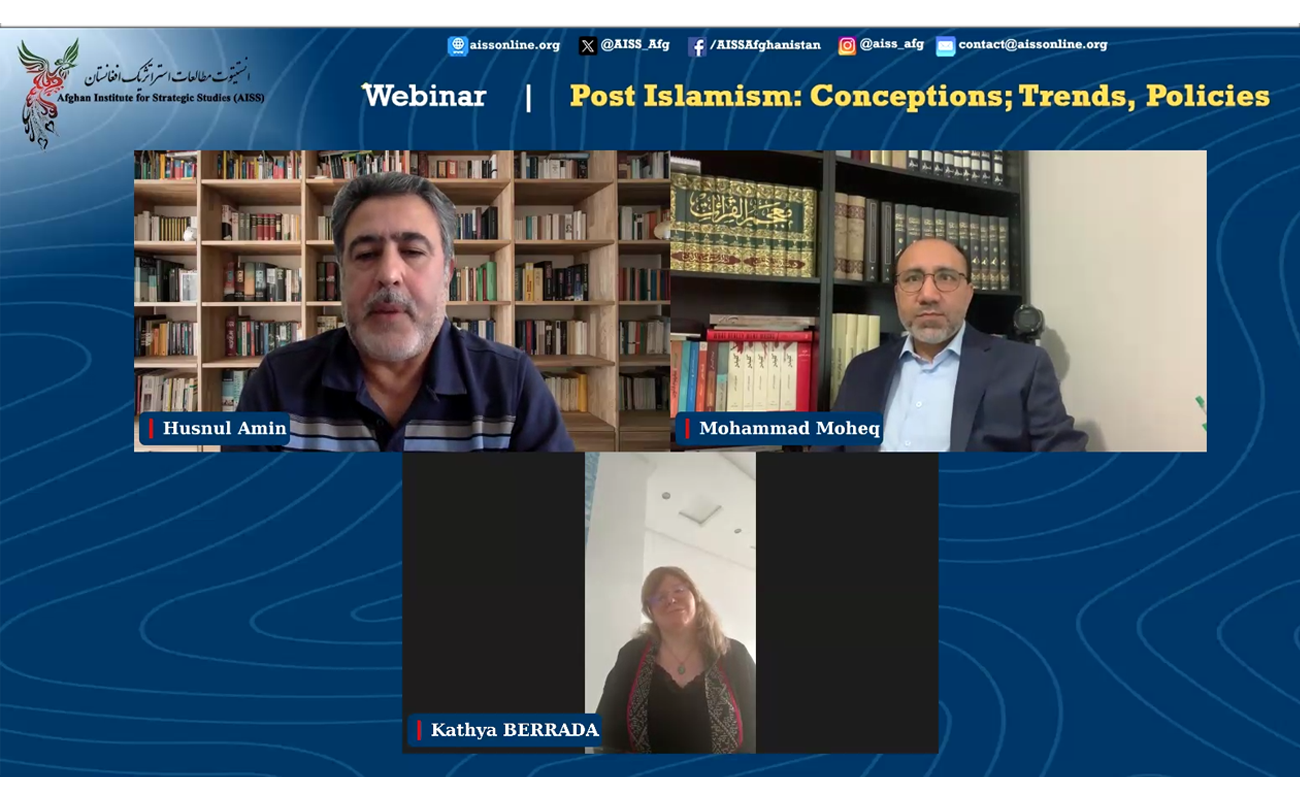Introductory Webinar “Post-Islamism Conceptions; Trends, Policies."
On Sunday, Sept. 22, the Afghan Institute for Strategic Studies (AISS) organized an introductory webinar titled "Post-Islamism Conceptions; Trends, Policies." The webinar aimed to examine the changing nature of Islamism as a political ideology and its impact on democracy and societies in Muslim-majority countries. Distinguished scholars discussed the concept of post-Islamism, providing insights from countries such as Turkey, Iran, and Morocco. The webinar featured two speakers, Dr. Hasnul Amin and Mr. Mohammad Moheq, and was moderated by Ms. Kathya Berrada.
Dr. Amin views post-Islamism as a response to the crisis faced by mainstream political Islam and militant Islam. This crisis stems from the failure of Islamist movements to deliver on their promises of creating ideal Islamic states or societies. Mr. Moheq interprets post-Islamism as an optimistic response to the Arab Spring, seeing it as a movement away from the reliance on Islamist groups by superpowers during the Cold War.
Dr. Amin emphasizes the importance of social, economic, and cultural contexts in determining the success of post-Islamism. He argues that reformist Islam has not gained traction among the masses due to its association with secularism in some countries. Mr. Moheq highlights the rapid population growth, particularly among less educated demographics, as a factor that strengthens Islamist groups. He sees a lack of access to quality education and critical thinking skills as a vulnerability that Islamist groups exploit.
Both speakers expressed concern about the continued appeal of Islamism in many Muslim-majority countries. Dr. Amin suggests that the success of post-Islamism depends on creating a more favorable social and cultural environment. Mr. Moheq emphasizes the need for better alternatives to Islamist groups, including addressing corruption within existing regimes and finding a solution to the Israeli-Palestinian conflict.

